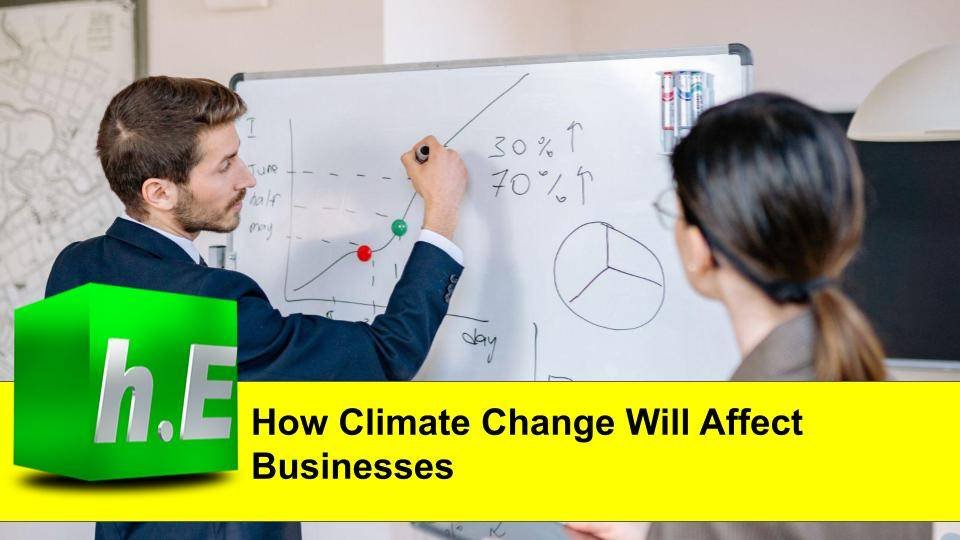It’s not a new idea that climate change will have an impact on businesses as much as on any other aspect of our lives. In fact, “Climate Change as Systemic Financial Risk” even served as the topic of a keynote address to regulators by Securities and Exchange Commissioner Allison Herren Lee at the end of 2020.
The Securities and Exchange Commission (SEC) is not exactly at the center of U.S. environmental policy. Nonetheless, since 2010 the SEC has required public companies to disclose to their shareholders any issues related to climate change that could have a significant impact on their business operations.
Increased Risk Due to Extreme Weather
Scientists have linked climate change1 to the increasing frequency and intensity of extreme weather events including storms, floods, droughts, and heatwaves. In the coming years, we will likely see more events that disrupt the operations of businesses and cause them extreme financial and physical damage. Severe weather is a primary reason that climate change increases the risk for businesses. Because of this increased risk, insurance costs for many companies will rise as well.

Changes in Resource Availability and Cost
These extreme weather events have the potential to disrupt supply chains making getting the resources and materials businesses to need more challenging. Severe drought and weather pattern changes may cause a shortage of crops used for food, apparel, and other products.
Rising electricity and transportation expenses may also increase the cost of moving goods. Regulatory restrictions on goods linked to climate change could also increase costs. Resource scarcity could drive companies to use alternative materials and recycle more waste.
Changing Demand
As the climate changes, demand will shift. As global temperatures rise, for instance, demand for heating oil will decline — as will demand other winter goods. More consumers are also prioritizing sustainability in the products they buy, shifting demand toward more environmentally friendly goods.
Harsher Working Conditions
As temperatures rise and weather patterns change, working conditions in some sectors may become harsher. Jobs that require physical labor, especially outdoors, will become more challenging, and health and safety risks in these industries will rise. This will increase costs in these sectors.
Physical risks: These risks occur when a company’s infrastructure, raw materials, or other assets are destroyed or rendered useless due to a weather incident. These risks can include climate-related disasters such as floods, tsunamis, and droughts. While no company can reverse an oncoming weather disaster, corporations can prepare for physical risks by assessing their vulnerability and taking steps to mitigate the most likely scenarios.
Prices: Climate change can cause the prices of commodities and raw materials to rise as weather-related disasters may render these materials rarer or more difficult to access. The result is lower supply, greater demand, and higher prices.
Product: As climate change progresses, it could affect buying patterns. For example, consumers may turn to new sources of energy or renewable products, putting standard systems and products out of favor. According to Nielsen, 73% of customers say they would change their buying habits just to have a greater positive impact on the environment.
What can businesses do?
With increased pressure to take action regarding climate change, what can businesses do? The first step for a business is to assess the impact and the damage that they cause to the environment.
Next, companies can set targets to cut down carbon emissions in line with the targets set out in the 2015 Paris Agreement, which seeks to limit temperature increase and reduce the impacts of climate change.

However, a report by Deloitte notes that most companies are not taking the already evident consequences of climate change into consideration while formulating policy, and are not taking any substantial action to counter the problem.
Despite this, movements like the Extinction Rebellion, with their aim to hold businesses accountable, are a reason for optimism- businesses may finally begin to consider climate change while thinking about core strategy.
We have always emphasized the importance of having a good website for your company because it can act as your best tool for marketing and sales. A poorly designed website can repulse people from your business and can cause you to lose customers before you even have them. Get in touch with HyperEffects to work on creating, enhancing, and making the website of your company more user-friendly.

